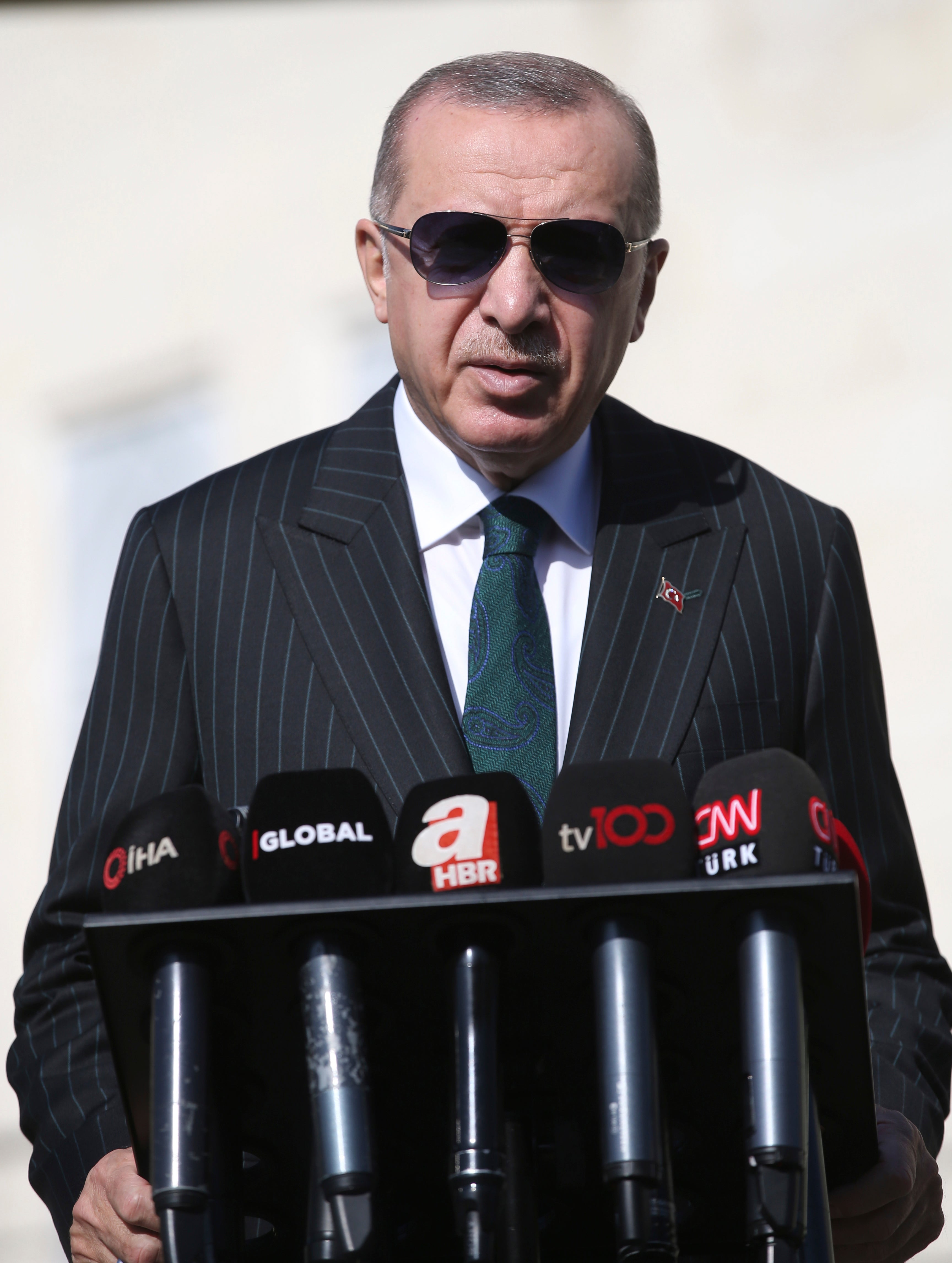Trump administration slams NATO ally Turkey for weapon test
In unusually strong language, the Pentagon is condemning Turkey's decision to test a Russian-made air defense system that has created a rift between Washington and one of its oldest NATO allies

Your support helps us to tell the story
From reproductive rights to climate change to Big Tech, The Independent is on the ground when the story is developing. Whether it's investigating the financials of Elon Musk's pro-Trump PAC or producing our latest documentary, 'The A Word', which shines a light on the American women fighting for reproductive rights, we know how important it is to parse out the facts from the messaging.
At such a critical moment in US history, we need reporters on the ground. Your donation allows us to keep sending journalists to speak to both sides of the story.
The Independent is trusted by Americans across the entire political spectrum. And unlike many other quality news outlets, we choose not to lock Americans out of our reporting and analysis with paywalls. We believe quality journalism should be available to everyone, paid for by those who can afford it.
Your support makes all the difference.The Trump administration on Friday slammed Turkey for taking a new step toward fielding a Russian-made air defense weapon. The U.S. complaint marked a deepening rift that threatens the future of a security relationship that has been central to the NATO military alliance for seven decades.
After Turkish President Recep Tayyip Erdogan confirmed that his country had tested the S-400 air defense system and brushed off American complaints, saying, “We aren't going to ask America,” the Pentagon hit back.
“The U.S. Department of Defense condemns in the strongest possible terms Turkey’s October 16 test of the S-400 air defense system,” the top Pentagon spokesman, Jonathan Hoffman, said in a statement. “We have been clear and unwavering in our position: an operational S-400 system is not consistent with Turkey’s commitments as a U.S. and NATO ally.”
The State Department separately called Turkey's test unacceptable and a “clear step in the wrong direction.”
“The United States has been clear on our expectation that the S-400 system should not be operationalized,” the State Department added. “We have also been clear on the potential serious consequences for our security relationship if Turkey activates the system.”
On a technical level, the U.S. government's concern is that the S-400 could be used by Turkey to gather data on the capabilities of the American-made F-35 stealth fighter jet, and that the information could end up in Russian hands. More broadly, Washington sees this weapon purchase as a slap at NATO and a violation of allies' commitment to move away from Russian defense equipment.
The U.S. kicked Turkey out of the F-35 program in 2019 after it took possession of the S-400 system. Turkey was making components for the F-35 and had planned to purchase 100 of the stealth fighters. The Trump administration has held out the possibility of easing the dispute if Turkey decides not to move forward with activating the air defense system, but Erdogan seems ready to go ahead.
"We are determined. We will continue on our path,” Erdogan said Friday.
Turkey, which neighbors trouble spots such as Syria, Iraq and Iran, has long sought to address shortcomings in air defense. It says it was forced to negotiate with Russia for the purchase of the S-400s after the U.S. refused to sell the American-made Patriot system. Turkey has also argued that the S-400 is one of the best available systems and says the deal with Russia involves joint production and technology transfers that meet its long-term goals of defense self-sufficiency.
The United States says talks on a potential Patriot deal failed over Turkey’s insistence on technology transfer rights that would have allowed it eventually to make the missiles themselves. This ran against U.S. manufacturers' propriety interests in addition to any national security concerns.
The dispute has created unease between allies at a time of heightened U.S. tensions with Russia. Turkey’s rapprochement with Russia and its decision to buy the Russian system also coincides with growing Turkish mistrust of the U.S. over its policies in Syria. Turkey has been angered with U.S. support for a Syrian Kurdish group in Syria that is affiliated with Kurdish rebels fighting Turkey.